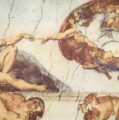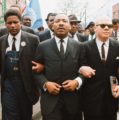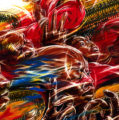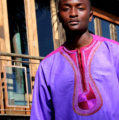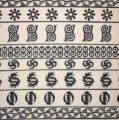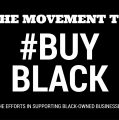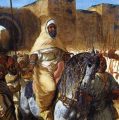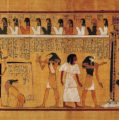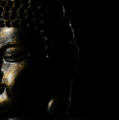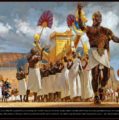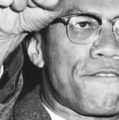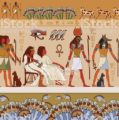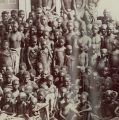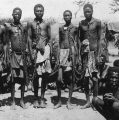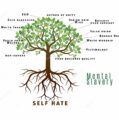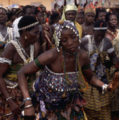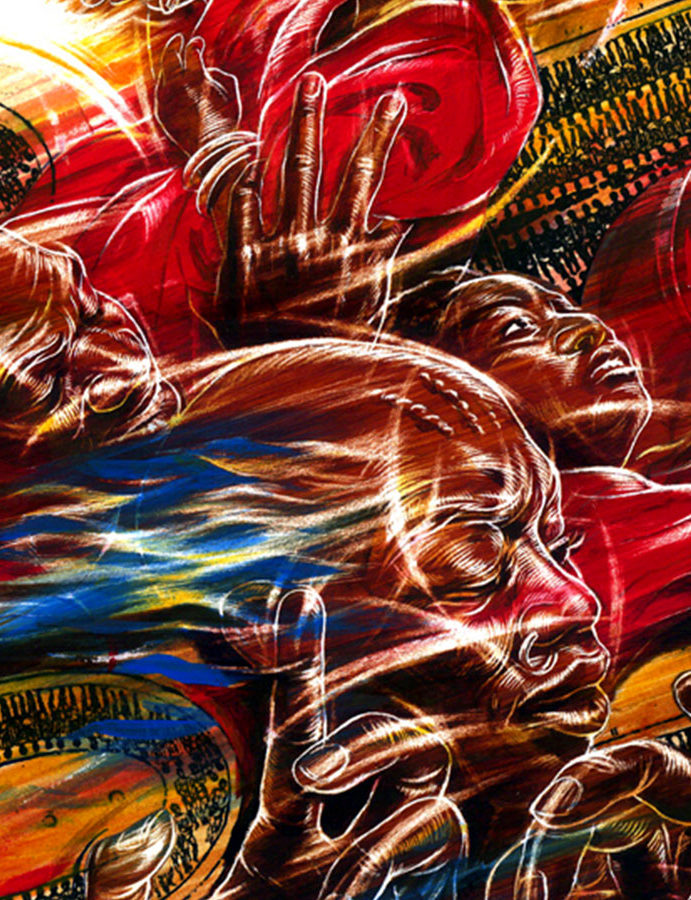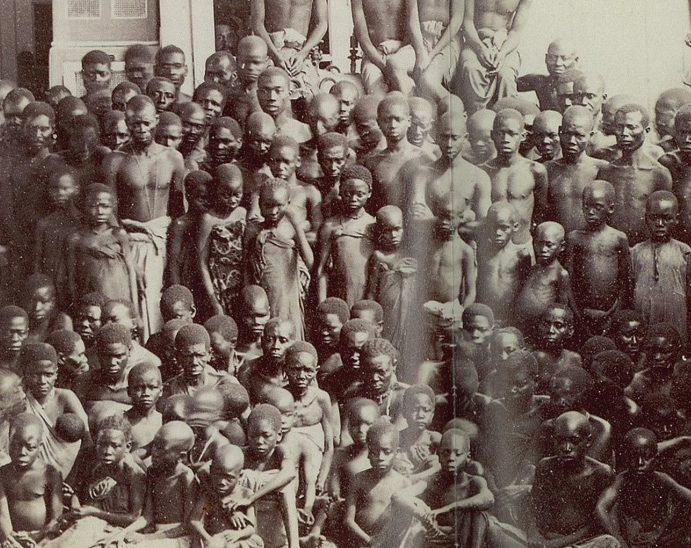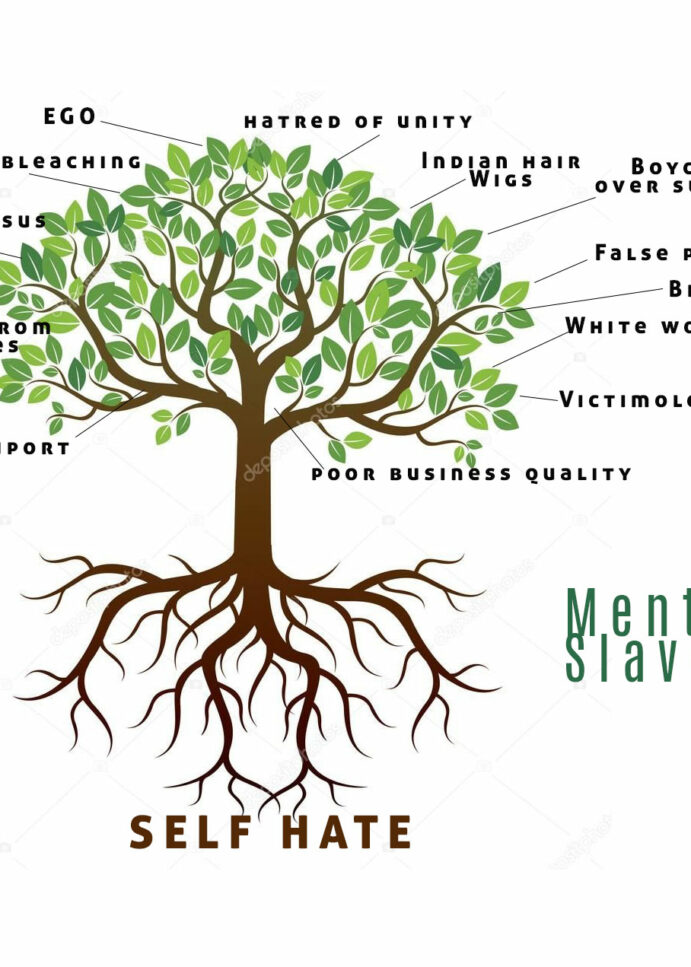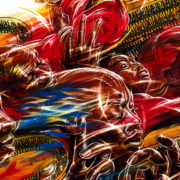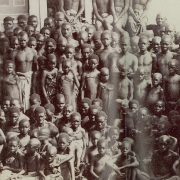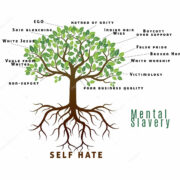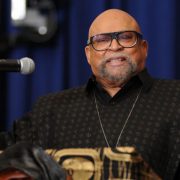African Holocaust: Maafa
Patreon Apr 11, 2020
The word ‘Maafa’ is derived from a Kiswahili word meaning great tragedy. The term today collectively refers to the 500 hundred years of suffering of people of African heritage through Slavery, imperialism, colonialism, apartheid, rape, oppression, invasions and exploitation. The African Holocaust is a pan-African discourse on the global historical and contemporary genocide against the mental and physical health of African people.
Arab Slave Trade
Slavery Apr 10, 2019
While Europeans targeted men in West Africa, the ‘Arab’ trade primarily targeted the women of East Africa to serve as domestic slaves, wet nannies and sex-slaves in the infamous harems. This trade trickled over millennia is estimated to have taken more than 10 million Africans via the Swahili coast to India, Saudi Arabia, China, and Turkey, and also via the Trans-Saharan route to North Africa and the Mediterranean, where in slave markets such as Ceuta, Morocco. Africans were purchased to work as domestic servants in Spain, Portugal, and other Western European countries
Mental Slavery | The Real Unbreakable Chains
Slavery Jan 3, 2017
Mental Slavery is far more sinister than physical slavery because the chains are invisible and are transmitted across generations. If African slavery was only physical, African people would have within one generation been able to skip the plethora of social-economic issues which plague African people which worsen with every generation.
The word ‘Maafa’ is derived from a Kiswahili word meaning great tragedy. The term today collectively refers to the 500 hundred years of suffering of people of African heritage through Slavery, imperialism, colonialism, apartheid, rape, oppression, invasions and exploitation. The African Holocaust is a pan-African discourse on the global historical and contemporary genocide against the mental and physical health of African people.
Read moreArab Slave Trade
Slavery April 10, 2019
While Europeans targeted men in West Africa, the ‘Arab’ trade primarily targeted the women of East Africa to serve as domestic slaves, wet nannies and sex-slaves in the infamous harems. This trade trickled over millennia is estimated to have taken more than 10 million Africans via the Swahili coast to India, Saudi Arabia, China, and Turkey, and also via the Trans-Saharan route to North Africa and the Mediterranean, where in slave markets such as Ceuta, Morocco. Africans were purchased to work as domestic servants in Spain, Portugal, and other Western European countries
Read moreMental Slavery | The Real Unbreakable Chains
Slavery January 3, 2017
Mental Slavery is far more sinister than physical slavery because the chains are invisible and are transmitted across generations. If African slavery was only physical, African people would have within one generation been able to skip the plethora of social-economic issues which plague African people which worsen with every generation.
Read moreThe critical issue of business in the African world is pertinent in an era where globalization is an ever more encroaching phenomenon, and marginalization of groups failing to engage in business is creating greater economic disparity. Good business is critical for African development as well as a mechanism for self-determination.
Read moreIt was said only when Haile Selassie came into power that the Ethiopian slavery in Ethiopia and/or the trade in enslaved people was firmly abolished. However many of his predecessor had seriously reduced the trade. This was done in 1924 in a bid to “clean-up” Ethiopia’s image for admission into the League of Nations. Labour not carried out by members of the family was on many cases the work of slaves.
Read moreThis speech was allegedly delivered by a White slave owner, William Lynch, on the bank of the James River in 1712. It is widely considered fictional. He outlines a mental slavery package to”controlling your Black slaves.” to the point where they will enslave themselves and profit the White race indefinitely.
Read moreThe struggle for reparations for the Holocaust of Enslavement of African people is clearly one of the most important struggles being waged in the world today. For it is about fundamental issues of human freedom, human justice and the value we place on human life in the past as well as in the present and future.
Read more
